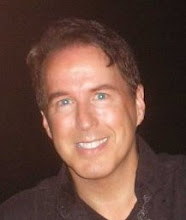March 11, 2007: Meet the Press, At Least a Few Who'll Keep You From Celebri-spiraling
 I wrist-slapped the Sunday Morning Talk Shows in an earlier post (The Sunday Talk Shows-News or Spin Cycle Gossip?). I was critical of them since, on that day, they seemed harsh and didactic, with pompous, bombastic guests who spewed inner beltway gossip as if it's substantial.
I wrist-slapped the Sunday Morning Talk Shows in an earlier post (The Sunday Talk Shows-News or Spin Cycle Gossip?). I was critical of them since, on that day, they seemed harsh and didactic, with pompous, bombastic guests who spewed inner beltway gossip as if it's substantial.
But today was different. Tim Russert on Meet the Press hosted an awesome show that made me understand aspects about the Iraq war I didn't get before, by adding historical insights and thoughtful approaches I hadn't considered. I was as engrossed in this show as I usually am in celebrity culture. I didn't feel the usual repulsion when I see typical Iraq war headlines, which stay the same; only the numbers change (X soldiers killed today in roadside bombing outside Bagdhad).
Instead, I was drawn into the news by the steady-yet-firm Ted Koppel (and I am not speaking of his hair), who offered smart insights about the future of the Iraq war. He'll expand on them in tonight's documentary: "Our Children's Children's War."
Here's a sampling of his comments from Newsbusters:
"First, Koppel made it clear that America’s premature departure from Iraq would turn the entire Persian Gulf region into a battlefield between Sunnis and Shia, “something the United States cannot allow to happen.” Second, he said the wars in Afghanistan and Iraq are part of the war on terror that “has been going on for the past 24 years” starting when “the precursors of Hezbollah blew up the U.S. marine barracks in Beirut, Lebanon” in 1983. Finally, he stated that America’s departure from Iraq and Afghanistan, regardless of when it occurs, will not represent the end of this battle, but, instead, that it is just “going to be a different war.”
Yes, post Iraq-discussion, there was some gossipy roundtabling about D.C.'s celebri-candidates-Hillary, Barack, Rudy, and John-as well as idle speculation regarding Time magazine's dissection of Dick Cheney's hopefully powered-down Vice Presidency.
But today's show with Zalmay Khalilzad, Michael Beschloss, Michael Duffy, Ted Koppel and Dana Priest reminded me how valuable really good journalists are, when they dig deep and explain complicated situations in ways laymen can understand, making the story content as relevant as possible to the average viewer.
Clearly, many viewers want escape from bad news (It's Not "The News." It's "The Bad News"). Isn't that one reason why many of us celebri-spiral, eating up soap opera tabloid stories, which offer a respite from heartbreaking, repetitive headlines about wars we don't understand and horrific global situations that seem out of our reach in more ways than one?
Thankfully, there are many, many scribes attempting the good fight: trying to make the news relevant and palatable at the same time. This is no small feat. The more they can do this, perhaps the less the rest of us will celebri-spiral. Anderson Cooper comes to mind, though he's criticized for making himself part of his stories. Jim Lehrer always digs beneath the headline's surface to unearth the real issues. My friend Shane Harris at National Journal does this for national security. But too often these days, I see fast, harsh, repetitive scrawls or the blow-hard tirades of talking heads like Bill O'Reilly: two surefire ways to send people like me running to Gawker and US.
I know it's all very John Lennon and Imagine of me to dream of real news that doesn't trigger a need to celebri-spiral. As soon as my Meet The Press high ends, The McLaughlin Group starts, bringing me back to another, uglier reality. Loud, cackling, ego-driven sound-bytes did nothing but make me long for Entertainment Tonight.


0 Comments:
Post a Comment
Subscribe to Post Comments [Atom]
<< Home